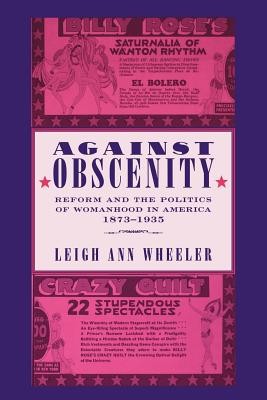
- We will send in 10–14 business days.
- Author: Leigh Ann Wheeler
- Publisher: Johns Hopkins University Press
- ISBN-10: 0801886384
- ISBN-13: 9780801886386
- Format: 15.2 x 22.9 x 1.6 cm, minkšti viršeliai
- Language: English
- SAVE -10% with code: EXTRA
Reviews
Description
As women beat down the doors and won the right to vote in the early twentieth century, adult (patriarchal) males rightly anticipated crusades on behalf of, or mounting conflicts over, those issues that particularly agitated women--drink, child welfare, and vice chief among them. This study examines the struggle of women to exert (matriarchal) control over burlesque houses, motion-picture theaters, and sex education in the schools--employing censorship in the role of moral leadership--and the opposition they encountered, from some men but also some women. Answering which, and why, Leigh Ann Wheeler finds that public disagreements on anti-obscenity fractured what appeared to be unity among women, undercut the earlier view of women as disinterested because apart from the public fray, and led to a resurgence of patriarchal authority--now in the shape of religious anti-obscenity. The leaders of the women's anti-obscenity movement launched their crusade in Minneapolis, but women across the country followed their example, so that Wheeler avoids the limitations of a purely local case study. Completed under the direction of Sara Evans, Wheeler's work offers a sterling example of how students of the women's experience can open new questions and deepen our understanding of cultural-political conflict in American life.
EXTRA 10 % discount with code: EXTRA
The promotion ends in 23d.13:41:28
The discount code is valid when purchasing from 10 €. Discounts do not stack.
- Author: Leigh Ann Wheeler
- Publisher: Johns Hopkins University Press
- ISBN-10: 0801886384
- ISBN-13: 9780801886386
- Format: 15.2 x 22.9 x 1.6 cm, minkšti viršeliai
- Language: English English
As women beat down the doors and won the right to vote in the early twentieth century, adult (patriarchal) males rightly anticipated crusades on behalf of, or mounting conflicts over, those issues that particularly agitated women--drink, child welfare, and vice chief among them. This study examines the struggle of women to exert (matriarchal) control over burlesque houses, motion-picture theaters, and sex education in the schools--employing censorship in the role of moral leadership--and the opposition they encountered, from some men but also some women. Answering which, and why, Leigh Ann Wheeler finds that public disagreements on anti-obscenity fractured what appeared to be unity among women, undercut the earlier view of women as disinterested because apart from the public fray, and led to a resurgence of patriarchal authority--now in the shape of religious anti-obscenity. The leaders of the women's anti-obscenity movement launched their crusade in Minneapolis, but women across the country followed their example, so that Wheeler avoids the limitations of a purely local case study. Completed under the direction of Sara Evans, Wheeler's work offers a sterling example of how students of the women's experience can open new questions and deepen our understanding of cultural-political conflict in American life.


Reviews